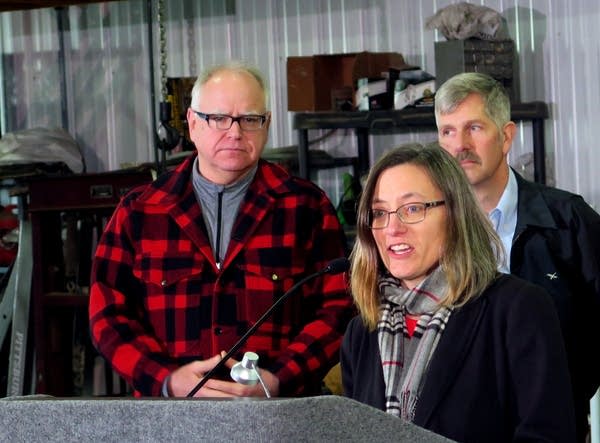Ag, DNR leaders highlight Walz priorities in Nicollet

DNR commissioner Sarah Strommen offers remarks after Gov.-elect Tim Walz announces her appointment on January 3 in Hastings, Minn. Strommen joined agriculture commissioner Thom Peterson in Nicollet Saturday.
Elizabeth Dunbar | MPR News
Go Deeper.
Create an account or log in to save stories.
Like this?
Thanks for liking this story! We have added it to a list of your favorite stories.


